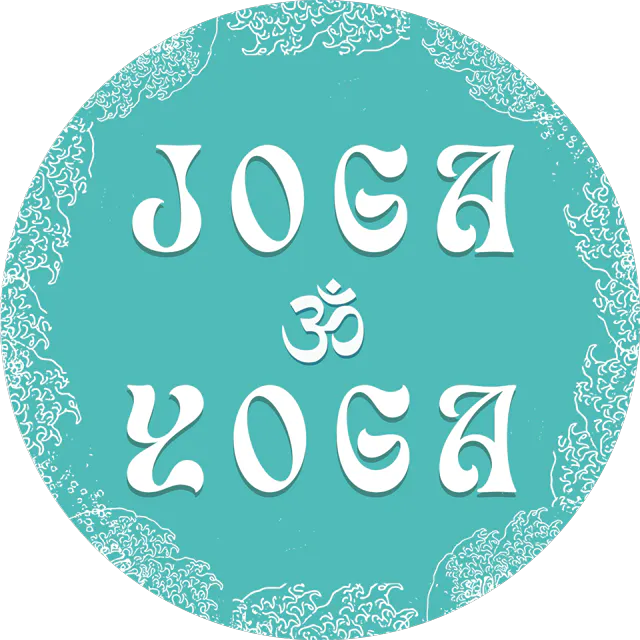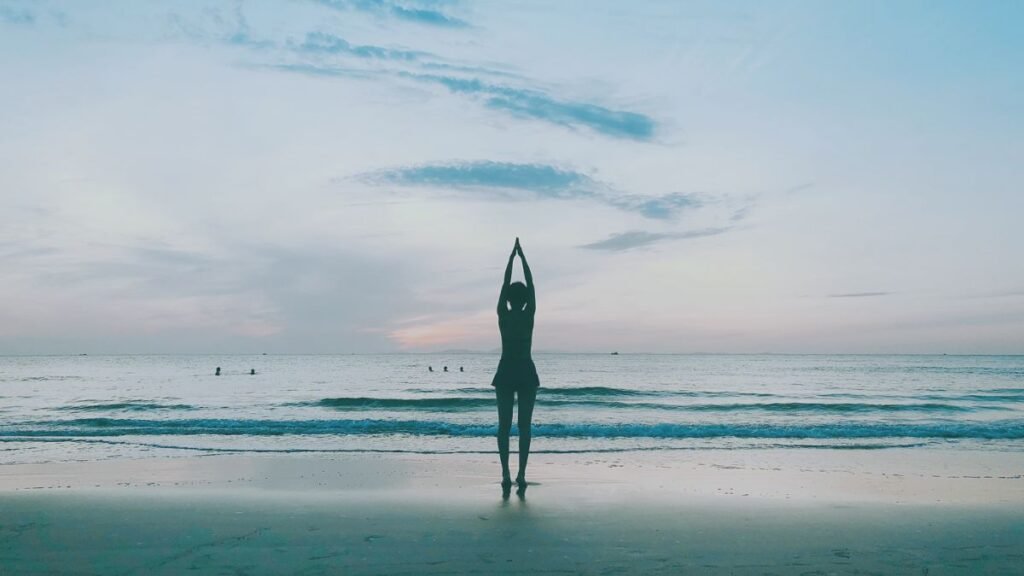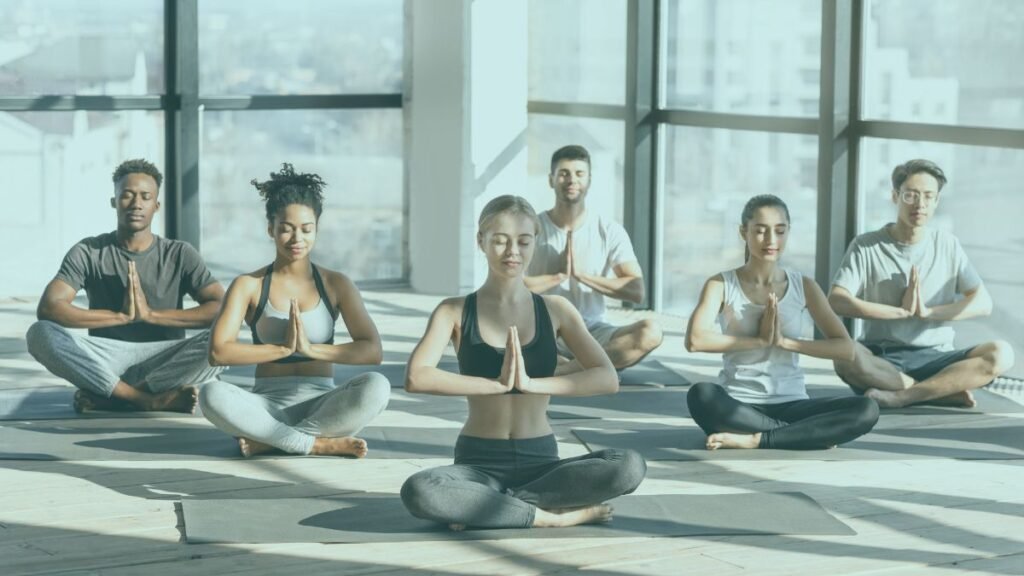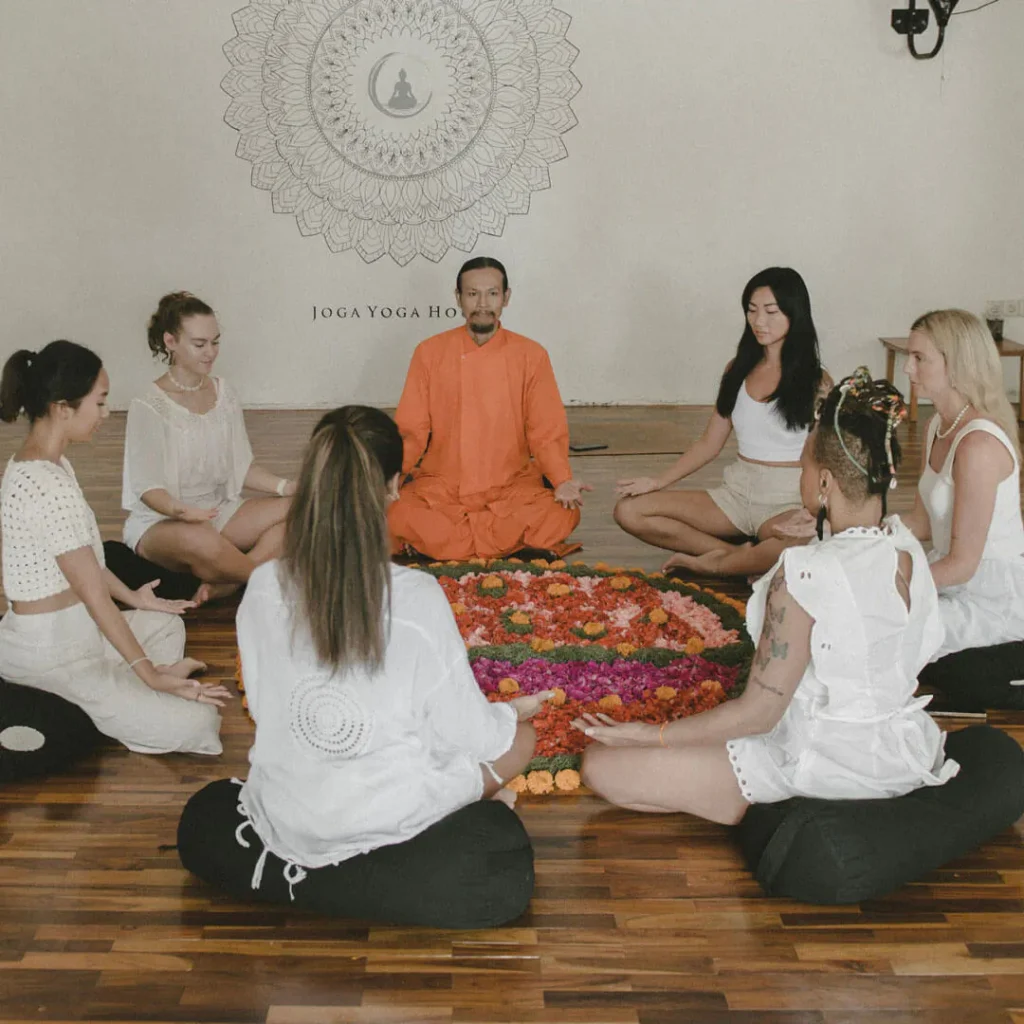Understanding Pre-Hot Yoga Nutrition
Eating the right foods before hot yoga is essential for maintaining energy levels, optimizing performance, and preventing discomfort. Hot yoga involves high temperatures and intense movement, making it crucial to fuel your body correctly.
By choosing the right pre-yoga meal, you can stay hydrated, avoid dizziness, and maximize endurance. This guide covers the best foods, ideal meal timing, and hydration strategies to ensure a strong, energized practice.
Best Timing and Meal Size Before Hot Yoga

When to eat before hot yoga?
The best time to eat before hot yoga is 2-3 hours before your session. This allows your body to digest food properly and prevents discomfort during practice.
If you need a quick energy boost, a small snack 30-60 minutes before class can help without making you feel sluggish.
How Meal Size Affects Your Yoga Practice
Larger meals take longer to digest and can make you feel bloated or heavy. Since digestion requires energy, eating too much before yoga can reduce muscle performance.
For best results, opt for a light, nutrient-dense meal that provides energy without overloading your stomach.
Learn more about how yoga works to better understand why a light, easily digestible meal, like a banana or a small bowl of oatmeal, is the best choice for your pre-hot yoga fuel.
Best Foods to Eat Before Hot Yoga
The best pre-hot yoga foods are light, hydrating, and easy to digest. Here are the top choices:
- Bananas – Rich in potassium, prevents muscle cramps.
- Oatmeal – Provides slow-releasing energy and fiber.
- Avocado on whole grain toast – Healthy fats and carbs for sustained fuel.
- Smoothies – Hydrating and packed with nutrients (use almond milk, protein, and fruit).
- Nuts and seeds – Almonds or sunflower seeds provide good fats and protein.
- Greek yogurt with honey – Light protein source with natural sugars for energy.
These foods help maintain blood sugar levels, prevent dehydration, and sustain energy throughout your yoga session.
Foods to Avoid Before Hot Yoga
Certain foods can cause discomfort and sluggishness. It’s best to avoid:
- Greasy and fried foods – Hard to digest, can cause bloating.
- Heavy proteins (red meat, beans) – Can slow digestion and make you feel sluggish.
- Dairy (except yogurt) – May cause mucus buildup or bloating.
- Spicy foods – Can trigger acid reflux.
- High-sugar snacks – May lead to an energy crash during class.
Avoiding these foods ensures better digestion and improved focus during your yoga session.
Hydration Strategies for Hot Yoga
Since hot yoga involves intense sweating, proper hydration is key.
- Drink at least 16 oz of water 2 hours before class to prevent dehydration.
- Sip water throughout the session to maintain hydration, but avoid chugging large amounts.
- Consider electrolyte drinks like coconut water to replenish lost minerals.
Hydration plays a major role in endurance, energy levels, and post-yoga recovery.
It’s important to understand that hot yoga can be quite demanding on your body, and you may feel drained afterwards. Learn more about why you might feel drained after hot yoga and how to manage this common experience.
Adjusting Nutrition to Your Body

Everyone’s metabolism and digestion work differently.
- If you experience bloating or sluggishness, eat at least 3 hours before your class.
- If you have a fast metabolism, a small snack 30 minutes before class might work better.
- Listen to your body and experiment with different foods and timing to find the best pre-yoga routine.
For those with sensitive stomachs, opt for low-fiber foods like bananas or yogurt before class.
Conclusion: Eating Smart for Hot Yoga
Choosing the right foods before hot yoga helps maintain energy, hydration, and digestion. The best approach is to eat a small, nutrient-rich meal 2-3 hours before practice while staying hydrated with water and electrolytes.
By making smart food choices, you can enhance your yoga experience, prevent discomfort, and improve your performance.
FAQ
What if I’m not hungry before hot yoga?
It’s perfectly fine to skip a meal if you’re not hungry. However, ensure you’re adequately hydrated by drinking plenty of water beforehand.
Can I eat fruit before hot yoga?
Yes, fruit is a good option for a pre-yoga snack. Opt for easily digestible fruits like bananas or berries.
What about caffeine before hot yoga?
While caffeine can provide a temporary energy boost, it can also dehydrate you. It’s best to avoid caffeine before hot yoga.
How much water should I drink before hot yoga?
Aim to drink at least 16 ounces of water two hours before your hot yoga session.
Can I eat protein bars before hot yoga?
Protein bars can be a good option if you need a quick energy boost. Choose a bar that is low in sugar and easily digestible.






